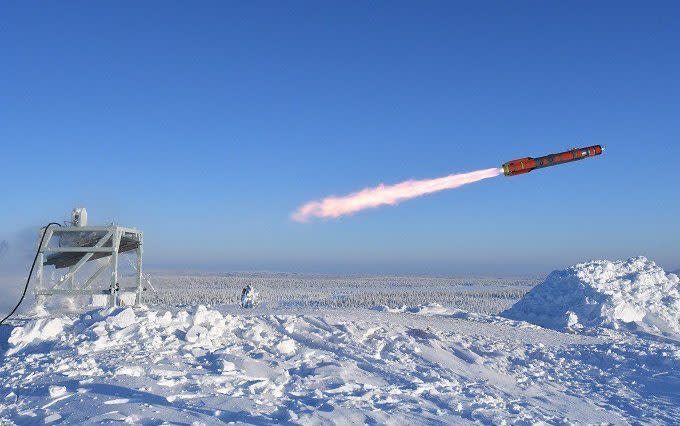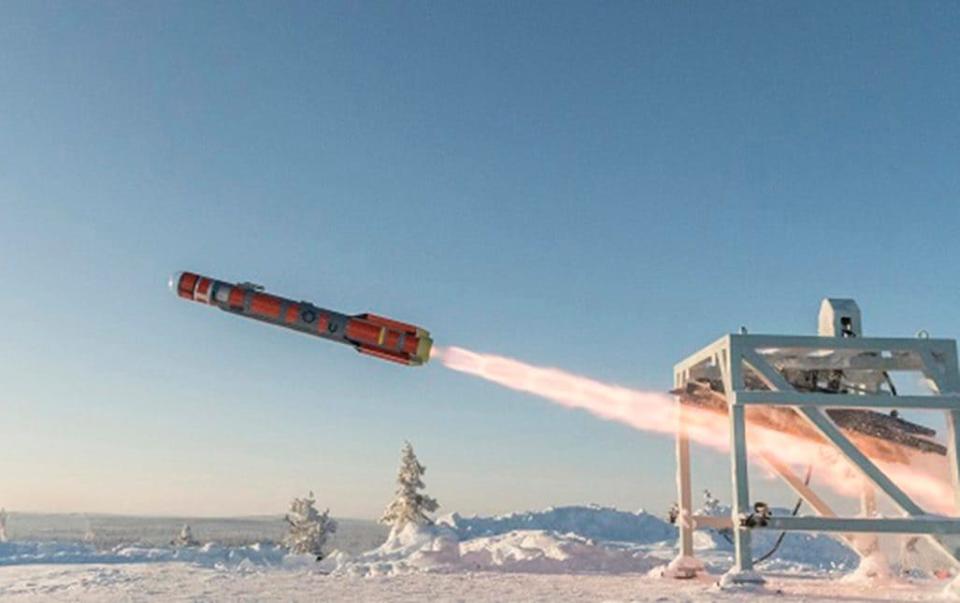Britain to send anti-ship missiles to Ukraine to prevent blockade of Black Sea

Britain is expected to start sending anti-ship missiles to Ukraine after the Defence Secretary warned any blockade of the Black Sea could see increased food prices.
Brimstone missiles, in service with the RAF since 2005 and used extensively in Afghanistan, can be modified to target ships.
The latest intelligence assessment from the Ministry of Defence said there were 20 Russian navy vessels in the Black Sea, including submarines.
Despite the “embarrassing losses” of the landing ship Saratov and the air defence frigate Moskva, the flagship of Russia’s Black Sea fleet, British defence officials warned Moscow’s naval forces retained the ability to strike the Ukrainian coast.
Asked on Sky News about the supply of weapons to Ukraine, Ben Wallace said: “We have said we will source and supply, if we can, anti-ship missiles.
“It’s incredibly important that grain that affects us all [through] food prices, does get out of Ukraine.”
When questioned about comments by Liz Truss, the Foreign Secretary, that Moscow’s forces must be pushed out of “the whole of Ukraine,” Mr Wallace appeared to play down the idea that Russia could be forced out of Crimea, which was annexed in 2014, in the near future.
“I think what I would certainly say is, we are supporting Ukraine’s sovereign integrity. We’ve done that all along. That of course includes Crimea,” he said.
“But you know, first and foremost, let’s get Russia out of where they are now in its invasion plans.”
Russia cannot be allowed to ‘control’ Black Sea
He added that Russia could not be allowed to “control the Black Sea” as “it’s not theirs anymore”.
“Making sure that Russian ships are not used to bombard cities is important.”
On March 13 the MoD said Russia had established a “distant blockade” of Ukraine’s Black Sea coast, effectively isolating the country from international maritime trade.
Since the sinking of the Moskva, Russian ships have been reluctant to get too close to the coast, but can still intercept Ukrainian shipping further out to sea.
The Brimstone missiles Britain will send could help weaken the blockade if fired from vessels close enough to Moscow’s fleet, but are more likely to be used to fend off any Russian amphibious assault of Odesa, a major city on Ukraine’s coast.

The first version of Brimstone entered RAF service in 2005. It was upgraded in 2008 so as to be targeted by laser. An improved model, called Brimstone 2, was used from 2016.
With a range of around 37 miles and a 6.3kg warhead, Brimstone 2 is designed primarily to hit ground targets including moving vehicles.
Missiles to be sent in ‘next few weeks’
However, a maritime version of the weapon has been developed, specifically designed to attack fast attack craft such as speed boats.
The missile, each costing around £175,000, can hit targets by tracking a laser fired by troops, aircraft or vehicles, or select its own target from a pre-programmed list through the use of an extremely high frequency millimetric wave radar.
This system allows the weapon to scan the battlefield and select the most appropriate target, discounting civilian vehicles or less important military equipment.
The maritime version of the missile, called Sea Spear, is very similar to earlier variants, but has to compensate for the radar and laser “scatter” that can occur when operating over water.

Trials were conducted in 2013 of Sea Spear fired against a simulated attack formation of five targets, one of which was a 15-metre craft travelling at 20 knots.
The successful trial demonstrated the missile’s ability to strike numerous individual targets at sea.
James Heappey, the armed forces minister, said the Brimstone missiles would be sent to Ukraine in the “next few weeks”.

